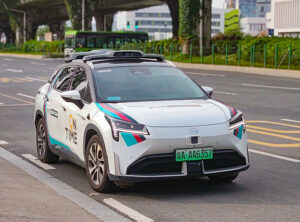Under new proposals from Transport for London, people moving to live within London’s Congestion Charge Zone (CCZ) would lose their 90% discount and face bills of over £6,000 a year – unless they drive an electric car.
Transport for London are looking to increase the city’s congestion charge from £15 to £18, after five years with no increase. The new proposals, which are now being consulted on, will encourage people towards using electric vehicles in two different ways.
Hitherto, EV drivers have benefitted from a 100% discount on the charge under the Cleaner Vehicle Discount, but the future of this exemption was uncertain as the scheme ends on 25 December 2025.
Putting forward their new proposals, TfL observe: ‘The volume of electric vehicles seen in the zone means a continued 100% discount would lead to worsening traffic and congestion.
‘However, in order to continue to support further adoption of electric vehicles we are proposing the introduction of a new Cleaner Vehicle Discount.’
They propose that from January 2026 electric vans and HGVs will enjoy a 50% discount and electric cars a 25% one.
These discounts would be halved from 4th March 2030, to 25% and 12.5% respectively.
Drivers will no longer have to register to receive a discount, instead DVLA data will be used to apply the discount automatically. That said, they will have to register for an Auto Pay account to benefit.
The other change applies to residents living inside the Congestion Charge Zone (CCZ).
Currently, those residents receive a 90% discount – and they will continue to do so – however anyone moving into the Zone after 1st March 2027 will only receive the discount if they drive an electric car.
Seb Dance, Deputy Mayor for Transport, said: ‘Keeping London moving by reducing congestion is vital for our city and for our economy.
‘The congestion charge has been a huge success since its introduction, but we must ensure it is fit for purpose. Sticking to the status quo would see around 2,200 more vehicles using the congestion charging zone on an average weekday next year.
‘At the same time we must support Londoners and businesses to use greener and more sustainable travel. That’s why I’m pleased we’re proposing that substantial incentives remain in place for Londoners who switch to cleaner vehicles.’
Christina Calderato, TfL’s Director of Strategy, said: ‘Since it was introduced in 2003, the Congestion Charge has been hugely successful in supporting the move to more walking, cycling and public transport and encouraging the uptake of the cleanest vehicles. With these proposed changes we want to make sure it continues to be effective in managing traffic and congestion in central London while providing ongoing support to those who need to drive in the zone to make the switch to an electric vehicle. I would encourage people to respond to the consultation to help shape our plans.’
The public consultation, which opened yesterday, will last ten weeks, ending on Monday 4th August.


















Leave a Reply